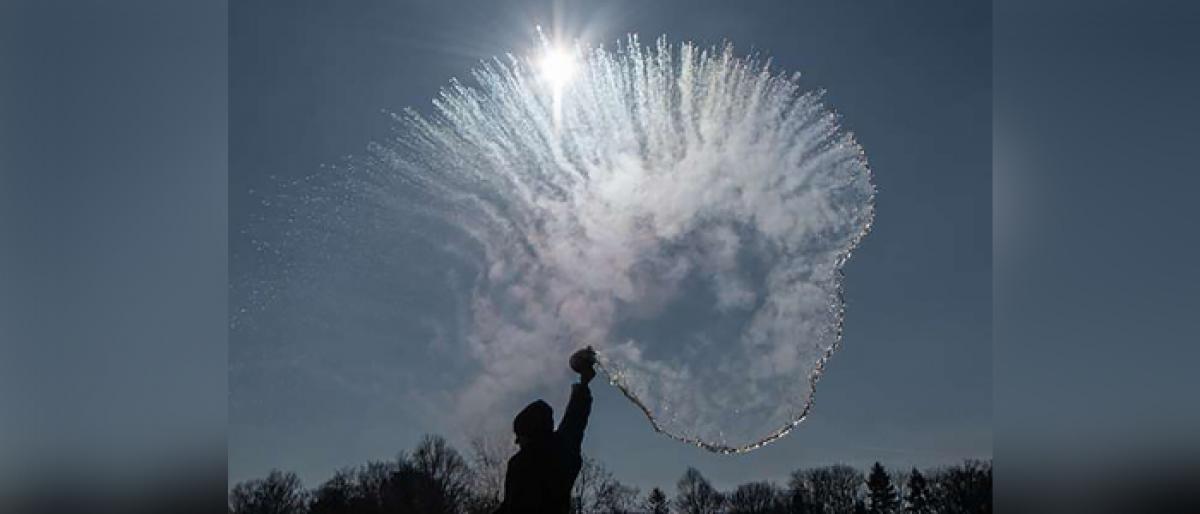Live
- Ponnam urges KGBV teachers to call off strike
- India, Pak in same group; to clash on Feb 23 in Dubai
- India, Pak in same group; to clash on Feb 23 in Dubai
- Kareena reveals her favourite Shyam Benegal film featuring sister Karisma
- A day with Collector Jeebanananda Mohanty
- Odisha signs pact to operate hydrogen-powered bus
- I am a victim of chit fund scam too: Majhi
- Telangana’s Ganapathi Self-Help Group Emerges Winner at PepsiCo India’s RevolutioNari Awards 2024
- Karnataka State real estate body faces problems over fine collection from builders
- ‘Mother India’ Shefali Shah goes river rafting in Rishikesh
Just In

Freezing pollutants can prevent deadly outdoor air pollution thought to cause more than three million premature deaths worldwide every year from seeping indoors by 99 per cent, scientists have discovered
London: Freezing pollutants can prevent deadly outdoor air pollution -- thought to cause more than three million premature deaths worldwide every year -- from seeping indoors by 99 per cent, scientists have discovered.
The research, by a team of scientists from the Nottingham Trent University in the UK and the Chinese Academy of Sciences, involved studying the effectiveness of cryogenics for indoor air purification, by removing the gaseous pollutants and tiny particulates caused by haze.
The team found that as they circulated haze-polluted air through a cryogenic condenser, the finer particles stuck together in the condenser tube before dropping out by gravity, and emerging as clean air.
Their method was able to remove 99 per cent of particulates and 98 per cent of nitrogen oxide pollutants.
"Hazardous outdoor air pollution has severely affected indoor air quality, threatening the health of billions of people," said Professor Robert Mortimer, Dean of the School of Animal, Rural and Environmental Sciences at Nottingham.
"Outdoor air pollution in cities is a global problem. While there are some existing technologies to purify indoor air, they can be inefficient, expensive or produce harmful by-products.
"When outdoor air quality is poor, people tend to spend even more time indoors - but outdoor pollution also leads to indoor pollution and people are still impacted."
The experiments, reported in the journal Science of the Total Environment, showed that by simply circulating polluted air through a small freezing chamber we can remove most of the fine particles and gas pollutants.
"Our study makes it possible to add an 'air cleaner' option to household appliances in areas which might experience extremely poor air conditions. By controlling indoor air pollution and improving air quality in this way, this work could be greatly beneficial for public health," added Gang Pan, Professor at the varsity.
It is hoped that the work could pave the way for simple modification of air conditioning and humidifier units so that they can also clean polluted indoor air, the team said.
Delhi and the National Capital Region (NCR) on Sunday witnessed "very poor" air quality with the minimum temperature recorded at 12.4 degrees Celsius, two notches below the season's average.
The air-quality across the NCR was very poor, according to System of Air Quality and Weather Forecasting And Research.
The humidity at 8.30 a.m. was 87 per cent. The maximum temperature was likely to hover around 28 degrees Celsius.

© 2024 Hyderabad Media House Limited/The Hans India. All rights reserved. Powered by hocalwire.com







